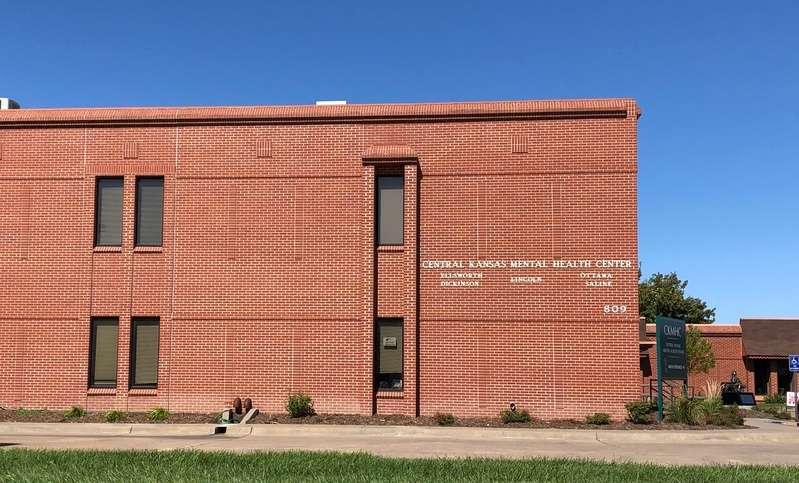Clarification / Unknown Future: Health center shutters detox program | News

Clarification posted Dec. 7
In the following article,The Chronicle stated in a sub-heading title, Alternative to detox.
Both that heading and the first sentence in that section refer to a harm reduction as a “detox alternative.” This is inaccurate. There is a continuum of supports for folks experiencing substance use disorder. On one end of the spectrum, there are programs that aim to decrease the harm cause by substance use, such as the harm reduction program that you highlight. On the far other end of the spectrum, are treatment options, including detox. In no way are these services interchangeable. The harm reduction program is not an alternative for detox. The Chronicle is happy to set the record straight.
Previous coverage posted Dec. 3
The St. Helens-based Columbia County Mental Health Center (CCMH) is shutting down its only detox program for the foreseeable future.
Columbia County Mental Health Services (CCMH) Executive Director Todd Jacobson said CCMH had to shut down its Bridges to Pathways Detox Center due to nursing staff shortages.

“People may not be aware of the staffing requirements, but due to the inherent risks for people who stop the ingestion of a drug, detox programs are required to have skilled nursing on shift 24/7.”
Todd Jacobson, CCMH Executive Director
“We are, and have been, actively recruiting for skilled nursing, but without success. Until we are able to hire enough skilled nursing to cover the detox program 24/7, we cannot reopen,” he said.
While CCMH, which specializes in mental health and substance abuse care, has since reopened its other counseling services to the public, Jacobson said the future of the detox program remains to be seen.
“Sadly, we are not certain of what the future holds for re-opening it,” he said. “People may not be aware of the staffing requirements, but due to the inherent risks for people who stop the ingestion of a drug, detox programs are required to have skilled nursing on shift 24/7.”
CCMH Director of Clinical Operations Miriam Parker, who oversees peer outreach services for substance abuse patients, said the clinic is forced to refer patients to rehabilitation centers outside Columbia County.
“Right now, because our detox facility is closed because of the staffing shortage, we are referring people to other detox programs. We’ve had I think three or four people in the last couple of weeks that we’ve taken to Portland to a program called Fora Health,” Parker said.
Fora Health Treatment & Recovery in Portland is an alcohol and drug addiction treatment program relying on a “trauma-informed, evidence-based approach” to treat those with substance abuse disorders.
According to Jacobson, the transportation of detox-seeking patients to the Portland metro area is routine, because a vast majority of detox centers are concentrated there.
The typical detox stay is one to five days, Jacobson said, and patients are not required to follow up with outpatient treatment.
Detoxification (detox) is the process of clearing one’s body of consumed drugs or alcohol while safely managing withdrawal symptoms, according to addictioncenter.com, and is one of several strategies used to eliminate drug dependence.
According to Jacobson, mental health and substance abuse treatment in general is incredibly underfunded at a federal level.
“(There’s) a lot of talk about it, but no one wants to pay,” he said.
The lack of support for mental health workers is compounded by Oregon’s recent spike in overdose deaths.
In the first six months of 2020, Oregon saw a nearly 40 percent increase in overdose deaths, compared to the same period in 2019, according to Oregon Health Authority.
Media reports indicate a strain on healthcare systems all over the nation, resulting in a mass exodus of healthcare workers.
Parker described how the changes are currently affecting local health service providers, particularly those who specialize in substance abuse treatment.
“The hospitals pay a lot more than community-based programs like CCMH, or even primary care clinics like Oregon Health & Science University (OHSU) and Legacy. This is just my take on it, but as people left the hospital jobs, that created a vacuum,” Columbia County Health Promotion Specialist Beaupre said. “People from the clinic jobs in the community then moved into some of those higher paying jobs, which creates a void in community-based jobs.”
According to Parker, CCMH staff are doing everything they can to ensure substance abuse patients receive proper care.
“Every person that we interact with is unique in terms of what they are wanting or needing in the moment,” she said. “We focus on trying to get them what they need If somebody is really wanting to detox right now, then we’re going to work with them to try to find events somewhere else outside of our county. If we can’t do that, or if they’re not necessarily looking to detox right now, then we might focus on other safer use techniques.”
Columbia County health officials say harm reduction, an alternative to detox, is being tested all over Columbia County.
The implementation of a harm reduction program was met with success in Clatsop County, according to Columbia Pacific CCO, a coordinated care organization serving Columbia, Clatsop, and Tillamook Counties.
Off the heels of Clatsop’s success, Columbia Pacific CCO announced it is investing in a $120,000 Northwest Harm Reduction Grant for the three counties to expand upon their existing harm reduction programs.
“Our grant funding for Columbia County’s fledgling harm reduction program is intended to help the program buy supplies, including sterile syringes, sharps containers (to ensure that used syringes are stored appropriately and returned to the program, thus reducing the number of used syringes out in the community) and substance-use equipment that helps prevent the spread of deadly diseases through the sharing of supplies,” Columbia Pacific CCO Medical Director Dr. Safina Koreishi said.
According to the agency, Columbia County will receive $25,000 from the grant to bolster its own harm reduction program, which was implemented back in April.
“At its heart, harm reduction is really about trying to help people be safe, which may include literally staying alive or avoiding the contraction of a communicable disease like Hep C or HIV, while they are active in their addiction,” Parker said.
Parker also said harm reduction has the potential to curb withdrawal through the facilitation of medication-assisted treatment (MAT).
“One of the other really important pieces in the spectrum of harm reduction services is what’s known as MAT,” Parker said. “That is when a licensed provider prescribes medicine to a person with a substance use disorder, which helps them avoid going into withdrawals, and it’s prescribed legally and safely.”
Parker said CCMH refers patients to OHSU for MAT treatment and referenced more informal methods of substance abuse management which appear to be effective in the community.
“We have a really active Alano Club in St. Helens, and many of the peers that work at CCMH are active in the Alano or in the recovery community in general,” Parker said. “Some people are able to get the help they need or the additional help for their substance use disorder through that more informal network of the recovery community.”
CCMH peer support specialists have a van stationed in front of the CC Rider parking lot on 1155 Deer Island Road in St. Helens to operate their support services from 1 to 3 p.m. every Tuesday.
If a person is using substances alone, the Never Use Alone Hotline (800-484-3731) can be a nonjudgmental and lifesaving point of contact for emergency services.
Oregon-based nonprofit Lines for Life and Oregon Health Authority recently launched the Safe + Strong Helpline at 1-800-923-4357 (800-923-HELP). The line offers free, 24-7 emotional support and resource referral to anyone who needs it — not only those experiencing a mental health crisis.







